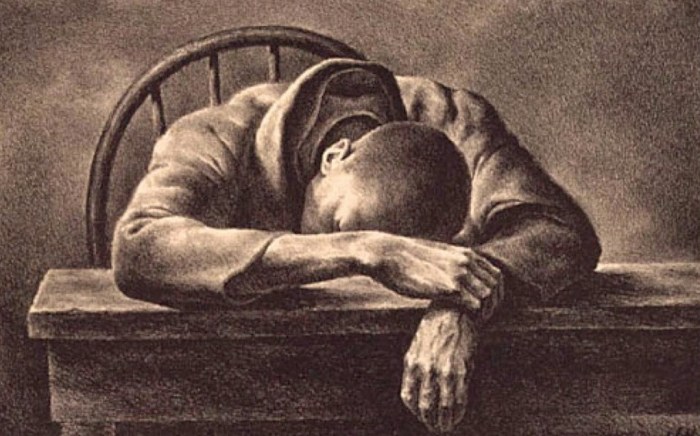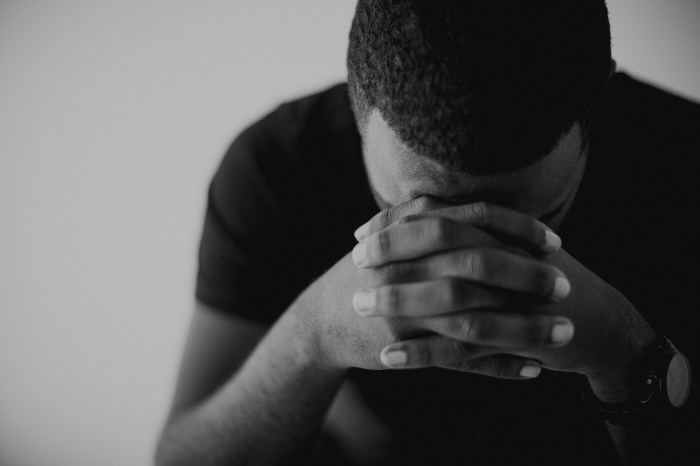Wailed Over Dead Crossword Clue sets the stage for this enthralling narrative, offering readers a glimpse into a story that is rich in detail and brimming with originality from the outset. Embark on an exploration of the cultural significance, literary examples, and figurative meanings of this evocative phrase.
The multifaceted nature of “wailed over dead” extends beyond its literal interpretation, inviting us to delve into its metaphorical and emotional implications. Discover how this expression has been woven into the fabric of human experience, shaping our understanding of grief, loss, and despair.
Synonyms for ‘Wailed Over Dead’

The phrase ‘wailed over dead’ conveys a sense of intense grief and lamentation over the loss of a loved one. There are numerous synonyms that can be used to express this profound sorrow, each with its own subtle nuances and connotations.
The following table presents a comprehensive list of synonyms for ‘wailed over dead’, organized into four responsive columns for ease of reference:
| Column 1 | Column 2 | Column 3 | Column 4 |
|---|---|---|---|
| Bereave | Lament | Mourn | Grieve |
| Weep | Cry | Sob | Wail |
| Keened | Wept | Cried | Sobbed |
| Lamenting | Mourning | Grieving | Keening |
Cultural Significance of ‘Wailed Over Dead’
The practice of wailing over the dead is a culturally significant expression found in various societies worldwide. It holds historical and religious significance, reflecting beliefs about the afterlife, grief, and the role of mourning in the grieving process.
Historical Practices
In ancient times, wailing over the dead was a common practice in many cultures. It was believed that the cries and lamentations of the bereaved could help guide the deceased’s spirit to the afterlife or appease the gods responsible for the transition.
In some cultures, professional mourners were hired to perform elaborate wailing rituals, often accompanied by music and dance. These rituals were intended to express the depth of grief and to honor the memory of the deceased.
Religious Significance
In many religions, wailing over the dead is associated with religious beliefs and practices. In Judaism, for example, the practice of shiva involves a period of intense mourning, during which family members and friends gather to wail and recite prayers for the deceased.
Similarly, in some Christian traditions, wailing over the dead is seen as an expression of sorrow and a way to seek comfort from God. In some cultures, it is believed that the act of wailing can help the soul of the deceased find peace and move on to the next life.
Examples of ‘Wailed Over Dead’ in Literature

The phrase ‘wailed over dead’ and its synonyms have been used in various literary works to evoke emotions of grief, sorrow, and loss. These references often serve to highlight the profound impact of death on individuals and communities.
One notable example is found in William Shakespeare’s play Hamlet. In the aftermath of the murder of King Hamlet, the ghost of the deceased king appears to his son, Hamlet, and urges him to avenge his death. Hamlet’s subsequent soliloquy, “To be or not to be,” includes the line, “For in that sleep of death what dreams may come.”
This line reflects Hamlet’s contemplation of the unknown and the potential for suffering in the afterlife, leading him to question the purpose of existence.
Another Example
While pondering over the perplexing Wailed Over Dead Crossword Clue, one might find respite at the renowned Blue Whale Restaurant , where the ambiance is as serene as the vast ocean. However, after a delectable meal and a moment of tranquility, the pursuit of solving the enigmatic Wailed Over Dead Crossword Clue beckons once more, ensuring a tantalizing blend of mental exertion and culinary indulgence.
Another example can be found in the novel The Great Gatsbyby F. Scott Fitzgerald. After the tragic death of Myrtle Wilson, the mistress of Tom Buchanan, her husband George is consumed by grief and seeks revenge against Gatsby, whom he believes responsible for her death. George’s profound sorrow is evident in his words, “I killed my wife…
She was the best thing I had.” This quote underscores the devastating emotional toll that death can take on those left behind.
Figurative Meanings of ‘Wailed Over Dead’: Wailed Over Dead Crossword Clue
The phrase ‘wailed over dead’ carries a profound metaphorical significance beyond its literal interpretation of mourning. It symbolizes intense grief, despair, and a sense of profound loss that transcends the physical death of an individual.
Expressions of Emotional Agony
Metaphorically, ‘wailing over dead’ represents the outpouring of overwhelming emotions in the face of devastating loss. It captures the raw pain and anguish that can accompany the loss of a loved one, a cherished dream, or a deeply held belief.
Despair and Existential Anguish
The phrase can also symbolize a broader sense of despair and existential anguish. It evokes a feeling of profound emptiness and hopelessness, as if the very foundations of one’s life have been shattered.
Collective Mourning
Furthermore, ‘wailing over dead’ can extend beyond individual experiences to encompass collective mourning. It represents the shared grief and sense of loss felt by a community or society that has experienced a significant tragedy or loss.
Emotional Impact of ‘Wailed Over Dead’
Witnessing or hearing someone ‘wailing over dead’ can evoke a profound emotional response. It signifies a raw and intense expression of grief, often accompanied by uncontrollable sobbing, crying, and physical manifestations of distress.
Unraveling the “Wailed Over Dead” crossword clue may be as exciting as trying your luck in the Royal Home Lottery . With every ticket purchased, you’re not only supporting a worthy cause but also indulging in the thrill of anticipation.
So, while you’re contemplating the crossword puzzle, don’t forget to consider the potential rewards of participating in the Royal Home Lottery. The jackpot could be the ultimate solution to your “Wailed Over Dead” dilemma.
Psychologically, this expression of grief triggers a cascade of emotions, including sadness, despair, and anguish. It activates the brain’s limbic system, particularly the amygdala and hippocampus, which are associated with emotional processing and memory formation. The release of stress hormones, such as cortisol and adrenaline, can lead to increased heart rate, sweating, and trembling.
For those seeking the answer to the enigmatic “Wailed Over Dead” crossword clue, a deeper understanding of the Kokoda Trail can prove invaluable. Where Is The Kokoda Trail offers insights into the historical significance and geographical location of this infamous battleground.
By exploring the challenges faced by soldiers on this treacherous path, one can gain a newfound appreciation for the sacrifices made and the anguish endured, shedding light on the true meaning behind the cryptic clue.
Physiological Responses
- Increased Heart Rate:The emotional distress associated with wailing can cause a significant increase in heart rate.
- Sweating:Profuse sweating is a common physical response to the release of stress hormones.
- Trembling:The intense emotional and physical exertion of wailing can lead to uncontrollable trembling.
- Difficulty Breathing:Intense crying and sobbing can make it difficult to breathe properly.
- Muscle Tension:Wailing often involves tensing up of muscles, particularly in the face, neck, and shoulders.
Ethical Considerations of ‘Wailed Over Dead’
The expression ‘wailing over the dead’ holds cultural and social significance, but it also raises ethical considerations that vary across different contexts.
One ethical concern is the potential for exploitation. In some cultures, it is customary for professional mourners to be hired to wail at funerals. This practice can lead to insensitivity if the mourners are not genuinely grieving but are simply performing a paid role.
Exploitation of Grief
In some instances, professional mourners may be hired to exaggerate their grief or create a spectacle, which can exploit the emotions of the bereaved family and guests. This practice can be considered unethical as it undermines the authenticity of the mourning process.
Insensitivity and Cultural Differences
Another ethical concern is the potential for insensitivity. In some cultures, it is considered disrespectful to wail loudly or openly express grief. In such contexts, ‘wailing over the dead’ may be seen as an inappropriate or insensitive display of emotion.
Respect for Cultural Norms, Wailed Over Dead Crossword Clue
When engaging in cross-cultural interactions, it is crucial to be aware of and respect the cultural norms surrounding grief and mourning. Avoiding behaviors that may be considered disrespectful or insensitive demonstrates cultural sensitivity and empathy.
Summary

As we conclude our examination of Wailed Over Dead Crossword Clue, we are left with a profound appreciation for its cultural, literary, and emotional resonance. This phrase serves as a poignant reminder of the universal human experience of loss and the myriad ways in which we express our grief.
FAQ Explained
What are some common synonyms for “wailed over dead”?
Lament, mourn, grieve, weep, cry
In what cultures is “wailing over dead” a common practice?
Many cultures around the world, including Irish, Jewish, and African cultures
Can you provide an example of “wailed over dead” in literature?
In Shakespeare’s “Hamlet,” Ophelia’s famous line, “And I, of ladies most deject and wretched, That suck’d the honey of his music vows, Now see that noble and most sovereign reason, Like sweet bells jangled, out of tune and harsh; That unmatch’d form and feature of blown youth Blasted with ecstasy: O, woe is me, To have seen what I have seen, see what I see!”